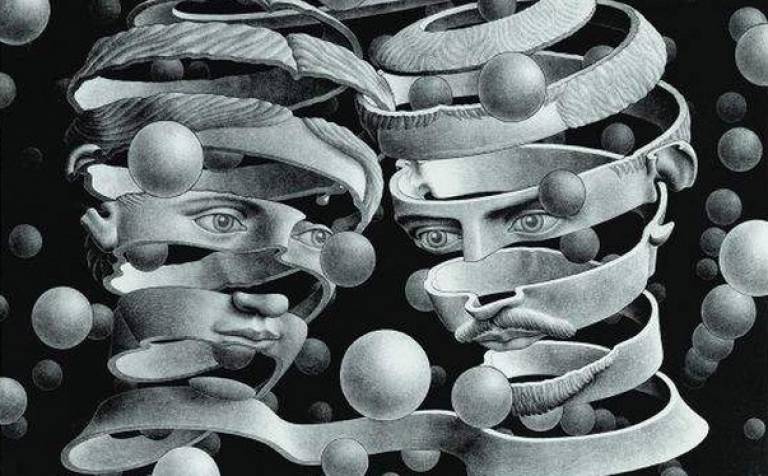Does not following a religion make you more reckless and immoral?
Great question!

17 March 2021
Bond of Union, 1974 by M.C Escher. Image Credit: National Gallery of Art.
As a historian, I do not believe that there is evidence to support the claim that “following a religion” makes one less reckless or more moral. But the very notion of “following a religion” can exist along a very long, complicated spectrum. Some people, in any particular religion, may not even identify some of those among their own faith as being in the same religious community, or “following” their religion.
No doubt such an evaluation, of “recklessness” and “morality” depends, in part, on the eye of the beholder.
All sorts of horrible, inhumane acts have been perpetrated, by individuals and communities, who believed that they were driven, or behaving according to their ‘religion.’ On the other hand, individuals and communities have done remarkable things in the name of religion as well.
Perhaps a better formulation would be: does respecting the religion of others, outside of oneself, make one less reckless, and more inclined to ‘morality’? In that case, I would say yes.
In the second volume of Mark Twain's (massive) three-volume authobiography (University of California Press), he has several long sections on institutional religion.
Read this chapter 'About the Character of God, as represented in the Old and New Testaments', recommended by Michael:
 Close
Close


